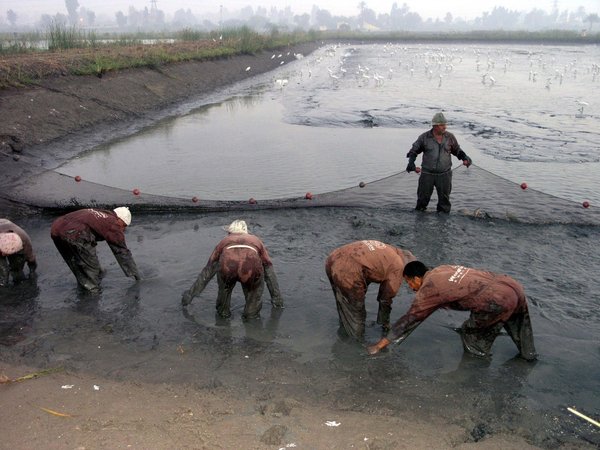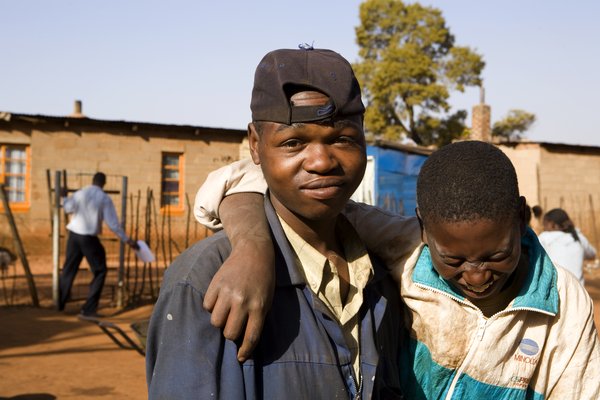
Cox's Bazar, Bangladesh in March 2018. Photo by UN Women, CC-BY-NC-ND.
Over the course of the last month, the movement of people around the world has virtually stopped. The dynamics of international migration have been turned on their head, with the vast majority of airlines grounded and travel restrictions confining people to their homes and neighbourhoods. From Ghana to Nepal, Brazil to Jordan, virtually everyone, regardless of nationality or colour, gender or class, has been told to stay home.
People have been forced to change the way they organise their lives. To stop.
Yet whilst all of those who travel internationally are affected by the seismic shifts taking place in the world around us, COVID-19 is not the ‘great equaliser’ that some have claimed but rather an amplifier of existing inequalities, including those associated with migration. Even in these relatively early days of the pandemic, it is clear that the impacts are not equally distributed.
The relationship between migration and inequality is profound but largely under-analysed. We know that migration can reduce inequality and contribute to positive development outcomes by redistributing resources at the national, regional and even global levels. But COVID-19 has severely disrupted access to the opportunities associated with migration, undermining the potential developmental benefits and creating new challenges for policy efforts aimed at securing improved outcomes for migrants and their families.
Inequality and COVID-19
The depth and extent of the inequalities facing migrants globally has been revealed by the COVID-19 pandemic.
Firstly, the toxic combination of poverty, an inability to access basic services and lack of rights makes it impossible for many migrants to protect themselves – or be protected. Whilst governments around the world implore populations to self-isolate and physically distance themselves from others to contain the spread of the virus, this is simply not an option for those whose lives and livelihoods were already precarious.
In refugee camps around the world – from Ritsona and Moria in Greece to Cox’s Bazar in Bangladesh and Idlib in North-Western Syria – there are increasing concerns about the potential loss of human life that seems almost inevitable. These are often places where hundreds of thousands of men, women and children are living in exceptionally crowded and unhygienic conditions, with a lack of running water and limited access to basic medical care let alone the ventilators and highly specialised equipment needed to sustain life. Whilst there are emerging examples of refugees leading initiatives to protect their communities, many humanitarian organisations have been forced to withdraw. Many refugees have been left to face whatever happens next on their own and without the attention of an international community fixated on its own interests and concerns.
Secondly, whilst some migrants, myself included, were able to leverage our economic, social and political privileges to return home as the pandemic took hold, this was simply not an option for the vast majority. In countries such as India, hundreds of thousands of internal migrants were forced to walk to their homes hundreds of kilometres away, some dying on the way. Yet the vast majority of the world’s 272 million international migrants continue to live outside their countries of origin, increasingly unable to work due to restrictions on movement. They and their families now face the consequences of an almost inevitable and protracted economic downturn. There is no ‘furloughing’ for these workers or for the millions of other poor people whose livelihoods were already precarious. And there is almost certain to be a significant downtown in global remittances, with ripple effects for communities across the Global South.
So what does this mean for MIDEQ?
COVID-19 has, perhaps more than anything else, demonstrated our global interconnectedness and the significance of migration for the ways our societies work. Unsurprisingly, some governments are dipping into their migration control toolbox to demonstrate the robustness of their response to it.
Hungary and South Africa, for example, are already using the pandemic as an excuse to dismantle democracy, either blaming migrants for the spread of the virus or building walls to keep them out. As our partners at OECD have pointed out, fear-exploiting rhetoric around the pandemic could provide the political space to push through structural anti-migration policies that would be detrimental to the rights and health of migrants and undermine the potential developmental impacts of migration.
Others have come to realise the value of so-called ‘low-skilled’ migrants for their economic and healthcare systems. Like Portugal, countries might decide that the cost of excluding and marginalising migrants does little to serve the interests of creating inclusive, productive and equitable societies.
These shifts in policy responses to migration will clearly have implications for MIDEQ’s research.
But the impacts of COVID-19 go further. For those of us trying to better understand global migration patterns and processes; unpack the role of social networks, economic opportunities, human rights abuses and public policy in shaping migration decision making; and challenge the ways in which governments use and abuse border controls to leverage political power and influence…everything has changed.
Moreover, the taken-for-granted ability of (some) people to move freely has been disrupted. No more jumping onto planes to meet with our research partners halfway around the world or to speak at conferences. No more face-to-face engagement with ‘stakeholders’. Our data collection plans are on hold, not just because of our inability to travel and meet with the migrants at the heart of our research but because of the – as yet unknown and unknowable – implications of COVID-19 for migration processes and for the countries and corridors in which our work is focused.
It seems inconceivable that things will simply return to the way they were just a few short weeks ago. The drivers of migration will almost inevitably be impacted. So too will the politics of migration policy and practice. We will be reflecting on these issues with our research partners over coming months as the situation evolves and the political, economic and social consequences become clearer. For the moment, only one thing is absolutely clear: MIDEQ’s work in unpacking the relationships between migration, inequality and development has never been more important.


